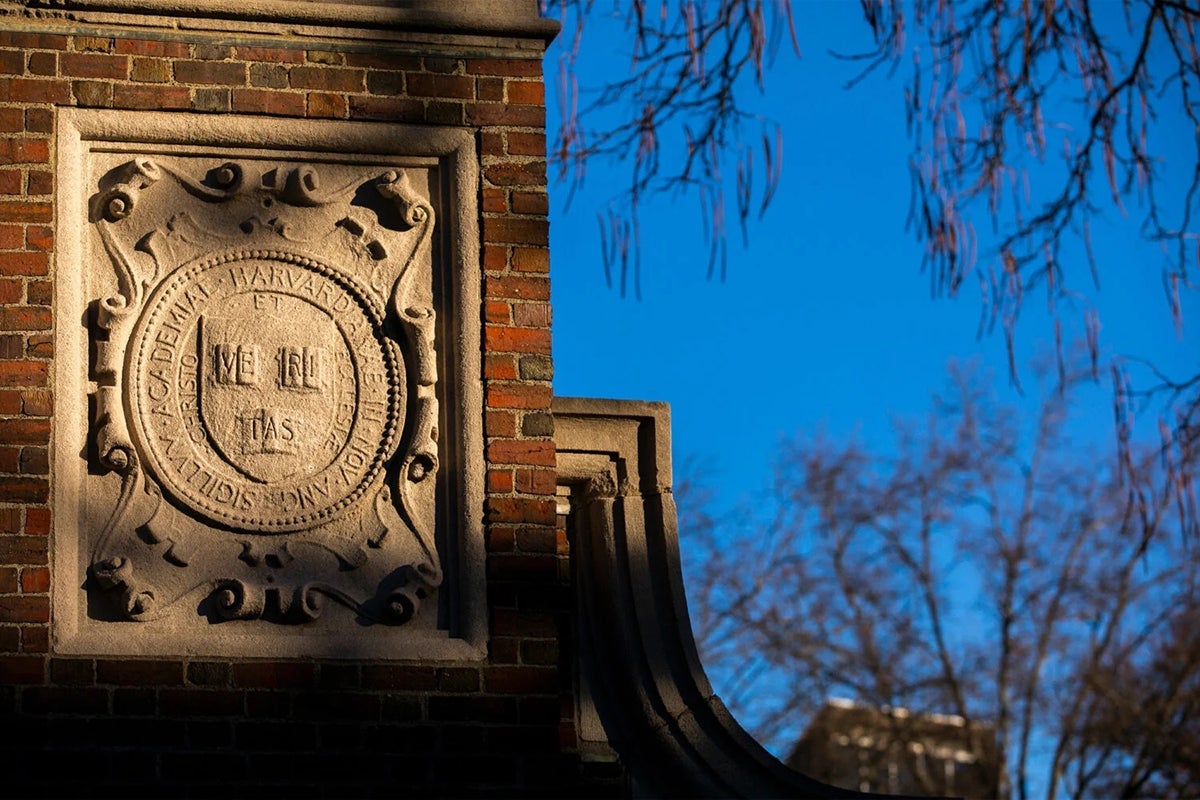Addressing Harvard’s legacy of slavery

Harvard Chan School community offers ideas for reckoning, repair
March 16, 2023 – Addressing Harvard University’s legacy of slavery will require genuinely listening to the concerns of descendants of people who were enslaved, making them full partners in decision-making about ways to address the harms done, and avoiding making assumptions about what they need or want.
Those are some of the top takeaways from a series of community discussions that have been held over the past few months with members of the Harvard T.H. Chan School of Public Health community, according to Lilu Barbosa, chief diversity, inclusion, and belonging officer.
Barbosa is overseeing the School’s efforts to respond to the Report of the Presidential Committee on Harvard & the Legacy of Slavery, published in April 2022. The report outlined the University’s deep connections to slavery in the 17th, 18th, and 19th centuries and to legacies of slavery well into the 20th century, highlighted how those ties shaped Harvard, and suggested broad recommendations for reckoning and repair. Sara Bleich, the University’s inaugural vice provost for special projects and a professor of health policy at Harvard Chan School, is leading the implementation of recommendations from the report.
Going forward, Harvard is seeking input from each of its Schools to help shape the work ahead. Since the report’s publication, Harvard Chan community members have been examining it, discussing its recommendations and implications, and considering how to respond as a school of public health.
Last summer, Harvard Chan senior leaders and deans submitted four initial proposals for consideration to an implementation committee for the report. Proposals included establishing symposia on health and reparations and creating a course in partnership with Harvard Medical School on racism in health sciences.
In addition, the School organized a series of community discussions about the legacy of slavery—some for the community as a whole, and some specifically for faculty, students, and staff. Using input from the discussions, Barbosa, in collaboration with the Dean’s Advisory Committee on Diversity and Inclusion, will work over the next three months to develop a set of recommendations to guide the work at Harvard Chan School. The recommendations will also be shared with the Office of the Vice Provost for Special Projects, led by Bleich, which is leading the implementation effort across the University; and the Harvard & the Legacy of Slavery Cross University Working Group, led by Bleich and Roeshana Moore-Evans, executive director of the Harvard & the Legacy of Slavery Initiative.
Across the meetings held so far—one last fall and three so far this year—community members have emphasized “the need for us to partner with folks who have been harmed, not trying to dictate what should happen, and not being paternalistic,” said Barbosa. “There’s been a strong recognition that if we don’t go about this the right way, we won’t be able to have the impact that we want. The most salient point through this process is that we have to approach the work so that we’re not replicating behaviors that are reflective of structural racism, disenfranchisement, or the inability to share power and create space for the voices of Black and Indigenous descendant communities to be heard. That’s come across loud and clear.”
Community members have suggested a range of possible actions that the School could take to counteract the legacy of slavery. Examples include:
- Establish mutually beneficial and enduring partnerships with historical Black colleges and tribal colleges that advance their mission and provide opportunities for Harvard to learn from its partners
- Engage local Black and Indigenous communities on ways to promote public health education and careers in K-12 curriculums
- Create a memorial on the Longwood campus to acknowledge the role of race science and racist ideologies in medicine and public health
- Require training for faculty in how racist constructs in science and academia have impacted people and how they can integrate a racial justice lens into their work
Barbosa noted that people have expressed “a healthy skepticism” about how Harvard will address its legacy of slavery. “We have to build trust,” he said. “Part of that is showing up in a way that reflects humility, being authentic and honest, and showing a sustained commitment over time through action.” He added, “This is a multi-year endeavor. It’s work that doesn’t end.”
Upcoming Legacy of Slavery community discussions include:
March 21: Full-day faculty retreat. Bleich will attend.
March 29: Legacy of Slavery Student Community Discussion (Part II)
Photo: Stephanie Mitchell


